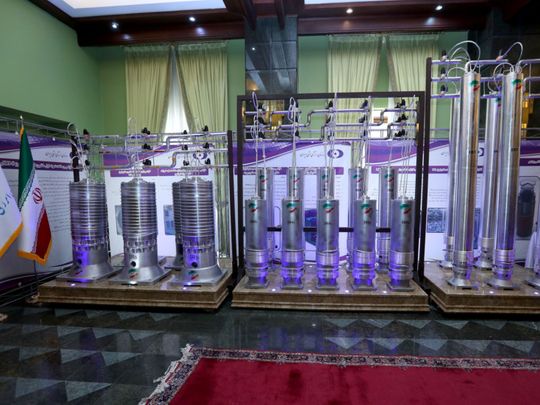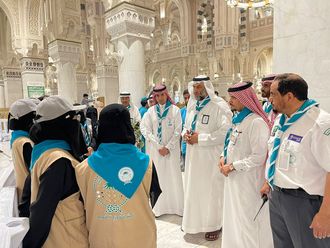
Dubai: Saudi columnists on Sunday voiced concern that Western nations were not taking a tough enough stance in indirect talks aimed at restoring the 2015 nuclear deal with Iran.
Saudi Arabia opposes the deal because it does not address the wider regional behaviour of Iran, its arch enemy.
The talks in Vienna aim to bring the United States and Iran back into compliance with the pact after the Trump administration quit the deal in 2018 and reimposed sanctions on Tehran, which responded by breaching some nuclear restrictions.
“There is Gulf apprehension regarding the Vienna talks,” Tariq Al Humaid wrote in Saudi-owned Asharq Al Awsat newspaper.
“Iran is specifying its terms and the timing whereas all the West wants is a deal as soon as possible ahead of Iranian elections,” he said, referring to June presidential polls.
The United States and Iran both took a tough stance at the Vienna talks, in which European Union officials are shuttling between the remaining parties to the deal. Washington predicted an impasse if Tehran sticks to a demand that all sanctions since 2017 be removed.
“Iran is taking advantage of US and European complacency to stall and dodge,” Saudi columnist Faheem Al Hamid wrote in local newspaper Okaz.
Saudi Arabia, which has been locked in several proxy wars with Iran in the region and is concerned about Iran’s ballistic missiles, supported former US President Donald Trump’s campaign of maximum pressure on Tehran.
Riyadh and its allies have said Gulf Arab states should be included in any negotiations between President Joe Biden’s administration and Iran on a new nuclear deal.
A senior member of the Saudi royal family, Prince Turki Al Faisal, told a virtual forum hosted by Bahrain’s Al Bilad newspaper on Thursday he was concerned Washington would buckle.
“A return to the (nuclear) agreement will not resolve the danger ... but could fuel conflict and push regional states to look at other options to maintain security and stability,” said Prince Turki, a former envoy to Washington who now heads the King Faisal Centre for Research and Islamic Studies.








